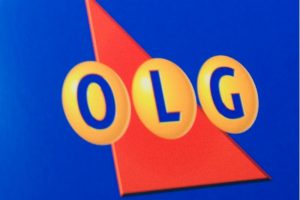 The Globe and Mail reported that Ontario Lottery and Gaming Corporation (OLG) will rely on a new private operator to take the control over the gambling sector in the Greater Toronto Area (GTA), counting on it to deploy the full potential of the industry in the area and give it a strong push forward.
The Globe and Mail reported that Ontario Lottery and Gaming Corporation (OLG) will rely on a new private operator to take the control over the gambling sector in the Greater Toronto Area (GTA), counting on it to deploy the full potential of the industry in the area and give it a strong push forward.
In a couple of weeks, the Ontario Lottery and Gaming Corporation (OLG) is supposed to choose a new casino operator, which will be assigned the task to take the control over the OLG-owned casinos and slot machines in the GTA. The winning company will sign a long-term agreement with OLG, under which the selected operator will be in charge of the OLG casino-related matters for a period of 22 years.
Unsurprisingly, this item of news stimulated the appetite of many foreign casino operators, who expressed their eagerness to participate in the bidding. Even though it is not a secret that the gaming industry in Toronto is still at the beginning of its development, the winning casino operator will be allowed to start with the renovation work on the three existing gambling facilities straight away and open a fourth gaming venue after the authorization of the officials.
In an interview for The Globe and Mail, it was released that the companies, which are bidding to take the control over the gambling operations at Toronto’s Woodbine Racetrack, Ajax Downs and the Great Blue Heron Casino in Port Perry are Canada’s Brookfield Asset Management, American-based Caesars Entertainment and Malaysian Genting Group.
All of them are lured by the OLG’s promises for a financial profit of at least $72-million per year for the coming 22 years of the agreement, along with up to 70% of the gambling revenue. In return, OLG is said to demand from the winning operator a strategy, aiming to increase the revenues, generated by the gaming industry.
The agency explained that its goal is to boost the economy and bridge some gaps in the budget, as OLG is said to be the government’s main source of non-tax revenues. The main setback of the gaming industry in the Greater Toronto Area is rooted in the constantly-increasing online gambling in the USA, which seems to be more attractive to the customers than OLG’s limited and outdated gambling facilities, which remain at the backstage.
OLG spokesman Rui Brum explained that the company’s revenues dropped significantly and now OLG is trying to find its feet and revive the casino market in the area. Consequently, the company sold nearly half of its casino facilities and slot machines to private operators, aiming to give momentum to a modernization process, which is believed to draw back the interest of the lost customers.
Once the name of the private operator is announced and the deal is done, OLG will reserve its rights to supervise its business and the local municipalities will continue to receive their share of the revenue, while the private operator will be in charge of the property and of the daily operations of the company.
This might be a significant step forward in the development of the gaming industry in the area, which suffered a significant slowdown over the recent years.



















